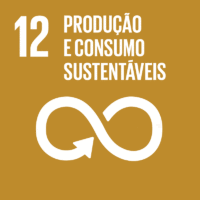Ciência_Iscte
Publicações
Descrição Detalhada da Publicação
ECOLISE Status Report 2019 - Reshaping the Future: How local communities are catalysing social, economic and ecological transformation in Europe
Web of Science®
Esta publicação não está indexada na Web of Science®
Scopus
Esta publicação não está indexada na Scopus
Google Scholar
Esta publicação não está indexada no Overton
Abstract/Resumo
‘The First Status Report on Community-Led Action on Sustainability and Climate Change in Europe’ draws together data from multiple sources, providing a comprehensive state-of-the-art of current knowledge regarding community-led initiatives (CLIs) across Europe.
“By assessing data from many different research projects and studies we now have a much clearer picture of the current status of this emerging sector and a better understanding of the important role it has to play in the rapid transformation that is needed to avoid climate and ecological catastrophe,” says Eamon O’Hara, Executive Director of ECOLISE, the European network for community-led initiatives on climate change and sustainability. “The message is very clear – engaging citizens in local, community-level responses leads to transformative change; without such engagement, such transformation will not be achieved.”
The report, which draws on academic studies, grey literature, and informal and experiential knowledge, demonstrates that communities are delivering a much broader set of benefits than technological solutions focussed only on reducing carbon emissions:
CLIs documented in formal research consistently demonstrate positive social benefits including increased social capital, civic participation and inclusion;
Economic benefits include the distribution of wealth creation, supporting local enterprise and employment creation;
The ecological footprints of many ecovillages and sustainable communities are a fraction of national averages, demonstrating the potential for one-planet living;
Engaged communities achieve significant reductions in carbon emissions due to a range of activities, including: promoting renewable energy and low energy lifestyles, enabling low-carbon mobility, and supporting local and sustainable food systems, while encouraging more plant-based diets;
Participation in CLIs leads to longer term shifts in lifestyle and behaviour;
The available data on emissions reductions and wider benefits show significant untapped potential to contribute to global climate and sustainability goals.
Based on the evidence assembled, the Status Report identifies seven basic preconditions for sustainable prosperity in Europe: Moving beyond growth, Nurturing commons ecologies, Eco-social regeneration, Solidarity economics, Inclusive governance, Transformative social innovation and Enabling community-led action.
The Status Report is published in cooperation with the Faculty of Science at Lisbon University. The lead authors are Tom Henfrey, Research Coordinator at ECOLISE, and Gil Penha-Lopes of the Faculty of Science, Lisbon University. The project is also being supported by many other partners and represents a new form of engaged scholarship that actively seeks to engage in the process of societal and cultural transformation.
Agradecimentos/Acknowledgements
--
Tipo de Relatório
Relatório anual de projecto internacional
Palavras-chave
Transição para a Sustentabilidade,Permacultura,Ecoaldeias,Economia Social e Solidária,Ecobairros
Contribuições para os Objetivos do Desenvolvimento Sustentável das Nações Unidas
Com o objetivo de aumentar a investigação direcionada para o cumprimento dos Objetivos do Desenvolvimento Sustentável para 2030 das Nações Unidas, é disponibilizada no Ciência_Iscte a possibilidade de associação, quando aplicável, dos artigos científicos aos Objetivos do Desenvolvimento Sustentável. Estes são os Objetivos do Desenvolvimento Sustentável identificados pelo(s) autor(es) para esta publicação. Para uma informação detalhada dos Objetivos do Desenvolvimento Sustentável, clique aqui.

 English
English




